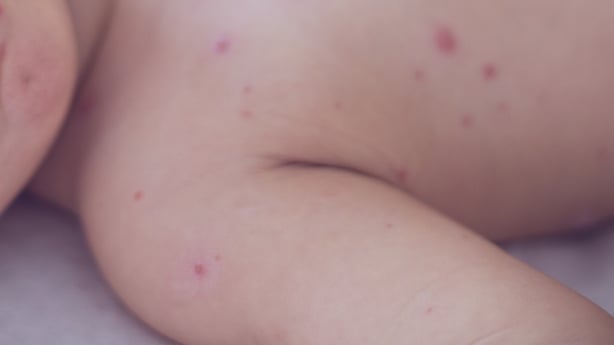The first case of measles in Northern Ireland since 2017 has been confirmed.
The Public Health Agency (PHA) said close contacts have been notified and all appropriate public health actions are being undertaken.
The PHA is urging children and young adults who have not received both doses of the measles, mumps and rubella (MMR) vaccine to do so.
The agency recently activated a mass vaccination drive in collaboration with health trusts and GP surgeries for all those aged between 12 months and 25 years who missed getting one or both of their MMR vaccines first time round.
#MMRcatchup
— Public Health Agency (@publichealthni) February 19, 2024
Any children or young people who missed getting the vaccine first time around will have the opportunity to receive it now.
Find out more at https://t.co/q2TAmvzIAI
or see https://t.co/3FB7zCzZ1m pic.twitter.com/zH0XE4aPA1
Dr Joanne McClean, director of public health at the PHA, said: "Identification of a case of measles in Northern Ireland was not unexpected, as we have seen a significant rise in cases in England and across Europe.
"However, in order to help prevent any additional cases here and possible outbreaks, it is vital that those who have not had their two doses of the MMR vaccine to act now and reduce the risks from this highly contagious and potentially deadly disease.
"We have seen a decrease in the numbers of children receiving the MMR vaccines.
"It is therefore important that children and young adults get any missed MMR vaccines as soon as possible.
"If you are unsure if your child or you have received the two doses of the MMR vaccine, check the 'red book' or contact your GP practice to find out."
The vaccination catch-up programme that is currently under way in Northern Ireland offers first and second doses of the MMR to anyone aged between 12 months and 25 years who missed getting the vaccines first time around.
Those who have never received any doses of MMR vaccine should book early to allow one month between dose one and dose two before the end of March.

Measles cases rose 79% globally last year - WHO
The World Health Organization has voiced alarm at the rapid spread of measles, with more than 306,000 cases reported worldwide last year - a 79% increase from 2022.
"We in the measles world are extremely concerned," said Natasha Crowcroft, a WHO technical adviser on measles and rubella.
She stressed though that measles cases are typically dramatically under-reported, and that the real number was surely far higher.
To get more accurate figures, the UN health agency models the numbers each year, with its latest estimate indicating that there were 9.2 million cases and 136,216 measles deaths in 2022.
Such modelling has not yet been done for last year, but Ms Crowcroft pointed out that 2022 had already seen a 43% jump in deaths from the year before.
Given the ballooning case numbers, "we would anticipate an increase in deaths in 2023 as well", she told journalists in Geneva, via video-link from Cairo.
"This year is going to be very challenging."
She warned that more than half of all countries globally are currently believed to be at high risk of measles outbreaks by the end of the year.
And some 142 million children are estimated to be susceptible to falling ill.
Measles is a highly-contagious disease caused by a virus that attacks mainly children. The most serious complications include blindness, brain swelling, diarrhoea and severe respiratory infections.
A major cause of the swelling numbers is the "backsliding immunisation coverage", Ms Crowcroft said.
At least 95% of children need to be fully vaccinated against the disease in a locality to prevent outbreaks, but global vaccination rates have slipped to 83%.
There is a great deal of inequity in the distribution of cases, and even more so when it comes to deaths.
Ms Crowcroft pointed out that 92% of all children who die from measles live among less than a quarter of the global population, mainly in very low-income countries.
Additional reporting from AFP

